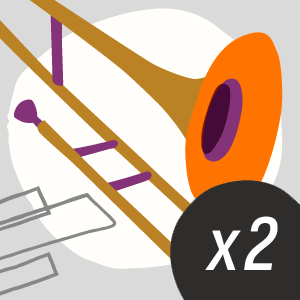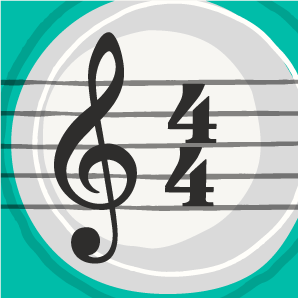Dvořák, Antonín - New World Symphony - 4th Movement Main Theme
Free Sheet music for Trombone Duet
Download Score PDF
(8notes Premium)
Standard Parts
Trombone 1Trombone 2Alternative Parts
Tenor Saxophone (⇒from Trombone 1)Request Additional Parts Request Large Note Part Request Part with Chords
Arrangements of this piece also available for:
- Alto Sax Quartet
- Alto Saxophone Duet
- Bassoon
- Cello
- Cello Quartet
- Clarinet
- Clarinet Quartet
- Double Bass
- Flexible Mixed (6)
- Flute
- Flute Duet
- Flute Quartet
- French Horn
- French Horn Duet
- Oboe
- Percussion (Xylophone)
- Piano (Beginner)
(8notes PREMIUM)
- Piano
(8notes PREMIUM)
- Recorder - Soprano (Descant)
- Saxophone (Alto)
- Tenor Saxophone
- Trombone
- Trombone Quartet
- Trumpet
- Trumpet Quartet
- Tuba
- Viola
- Violin
- Violin Quartet
Request New Version
About 'New World Symphony - 4th Movement Main Theme'
Artist:
Born:
1841
, Nelahozeves, Bohemia
Died:
1904
, Prague
The Artist:
Czech composer, whose influences include Brahms, Wagner and folk music from his nature land.
Composed:
1893
Info:
The New World Symphony, was composed by Antonín Dvořák in 1893 while he was the director of the National Conservatory of Music of America from 1892 to 1895. It is popular mainly for its famous Largo theme, but this theme from the last movemement is also very memorable.
Tempo Marking:
Allegro con fuoco ( View more music marked Allegro)
View more music marked Allegro)
Score Key:
G minor (Sounding Pitch) ( View more G minor Music for Trombone Duet )
View more G minor Music for Trombone Duet )
Duration:
2:34
Time Signature:
4/4 ( View more 4/4 Music)
View more 4/4 Music)
Number of Pages:
2
Difficulty:
Easy Level: Recommended for Beginners with some playing experience
Instrument:
Style:
Copyright:
© Copyright 2000-2025 Red Balloon Technology Ltd (8notes.com)
This file may be printed and performed freely, but should not be digitally copied, shared or reproduced without permission.
This file may be printed and performed freely, but should not be digitally copied, shared or reproduced without permission.
This piece is included in the following :




Antonín Dvořák Sheet Music

Trombone Duet Sheet Music

Pieces in 4-4 Time Signature










